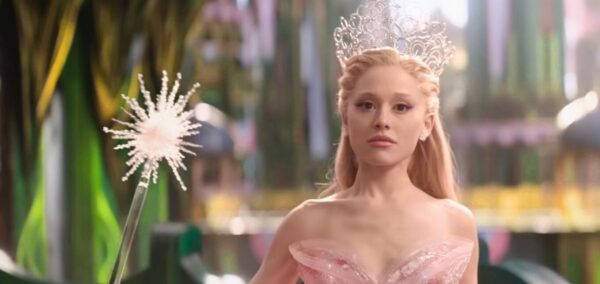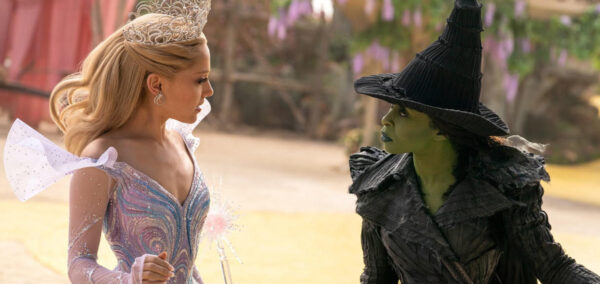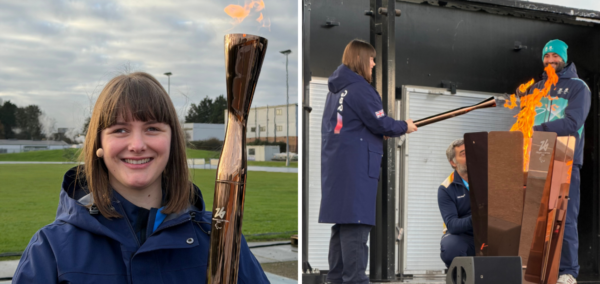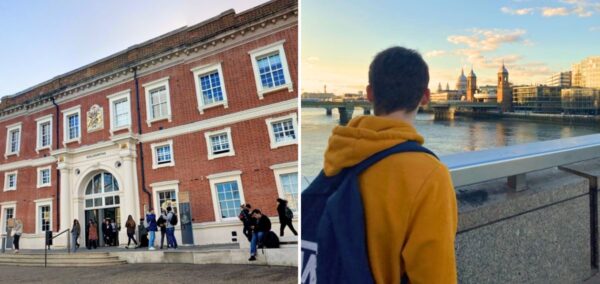
Here’s what the magic spells in the Grimmerie book from Wicked: For Good actually mean
The Tin Man spell is actually so sad
In Wicked: For Good, Elphaba casts plenty of magic spells from the creepy Grimmerie book. The enchantments aren’t just cool-sounding nonsense. The words all actually have meanings.
The composer of the Wicked musical Stephen Schwartz came up with spells that mean something, but aren’t in any one language. So, each word is made-up, but come from a real word. Stephen Schwartz shared on his website back in 2010 that there are “some Egyptian influence in Elphaba’s chants”, and also “Latin, German, Greek and Italian references”. He explained: “I was trying to come up with chants that one sort of understood, without them being in any one recognisable language.”
The actual Grimmerie prop in the musical does also have writing in, by the way.

Ta-da!
So, here is an exact breakdown of what the words are for the magic spells in Wicked: For Good, and what they mean.
The spell that Elphaba uses on Nessa
This scene plays out differently in the Wicked: For Good Film. The creatives chose for Nessa to levitate, instead of walk.
The spell Elphaba uses on Nessa in the musical is: “Ambulahn dare pahto pahpoot ambulahn dasca caldapess lahfenahto lahfenahtum pede pede caldapess.”
“Ambulahn” comes from the Latin verb “ambulare”, which means “to walk”. “Dare” means “to give” in Latin. “Pede” is Latin for “on foot”. “Pahto” and “dasca” sound to me like they came from the ancient Greek verbs πατειν and διδασκειν, “walk” and “learn”. “Caldapess” is pretty close to the Italian verb for stomping on someone, “calpestare”. I’m lost on “lahfenahto” and “lahfenatum”.
Basically, the spell roughly means: “Give walking, walk, walk, give walking, stomp, stomp with your foot, with your foot.”
The spell that Nessa uses
Nessarose doesn’t get far with this spell. But you can hear “cor”, the Latin word for heart.
The spell that turns Boq into the Tin Man

Finally, knowing ancient Greek and Latin is useful!
(Credit: Universal Pictures)
The full spell is “Vivahlos vivahlos meno non cordo meno vivahlos vivahlos meno mon cordo.”
The “meno non cordo” part does have a specific meaning. Stephen Schwartz explained on his site “someone who knows linguistics will recognise [the phrase] as meaning “without a heart”, but not in any Earth language.”
If you’re interested, “meno” means “less” in Italian, “non” means “no” in Latin, and “cordo” comes from the Latin word for heart, “cor”.
Meno also means “stay” in ancient Greek, by the way. “Vivahlos” is a play on “vivere”. It means “to be alive” in Latin, and loads of European languages have words which come from it.
So, that spell essentially means something in the realm of: “Stay alive, stay alive without a heart, stay alive, stay alive without a heart.”
The spell that turns Fiyero into the Scarecrow
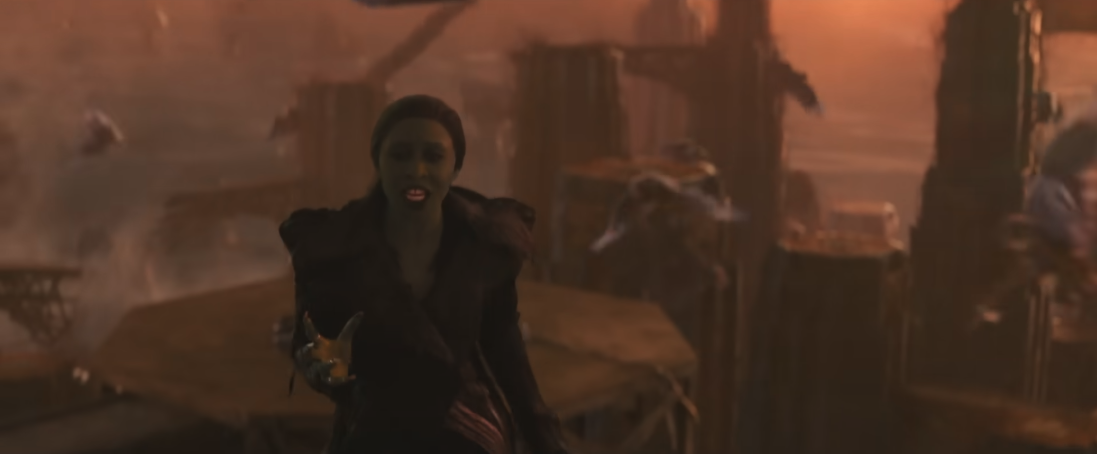
I will never recover from this scene
(Credit: Universal Pictures)
Elphaba sings this again and again in No Good Deed. The “words” for this one seem to have been chosen more for their musicality than their meaning.
Elphaba sings: “Eleka nahmen nahmen ah tum ah tum eleka nahmem, ah tum ah tum eleka nahmen, eleka nahmen nahem, ah tum ah tum eleka eleka.”
Stephen Schwartz has said he didn’t intend to invoke the name of the ancient Egyptian god Amum, but has acknowledged part of the chant turned out sounding like that. He intended for the spell to sound similar to Egyptian.
For more like this, like The Tab on Facebook.






